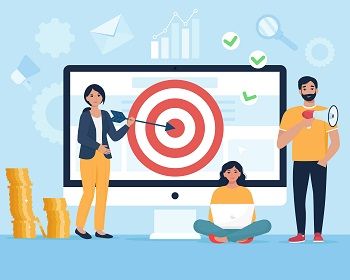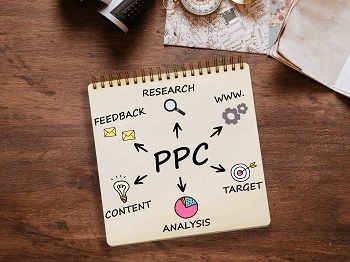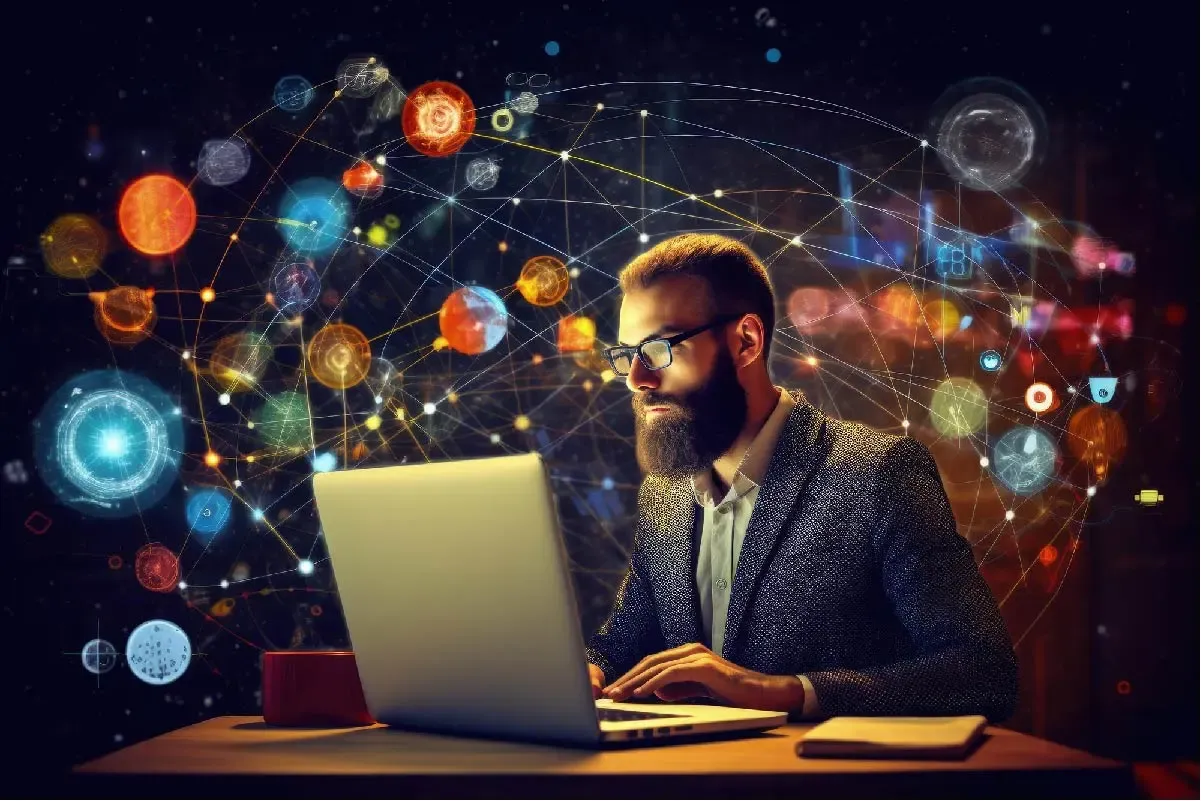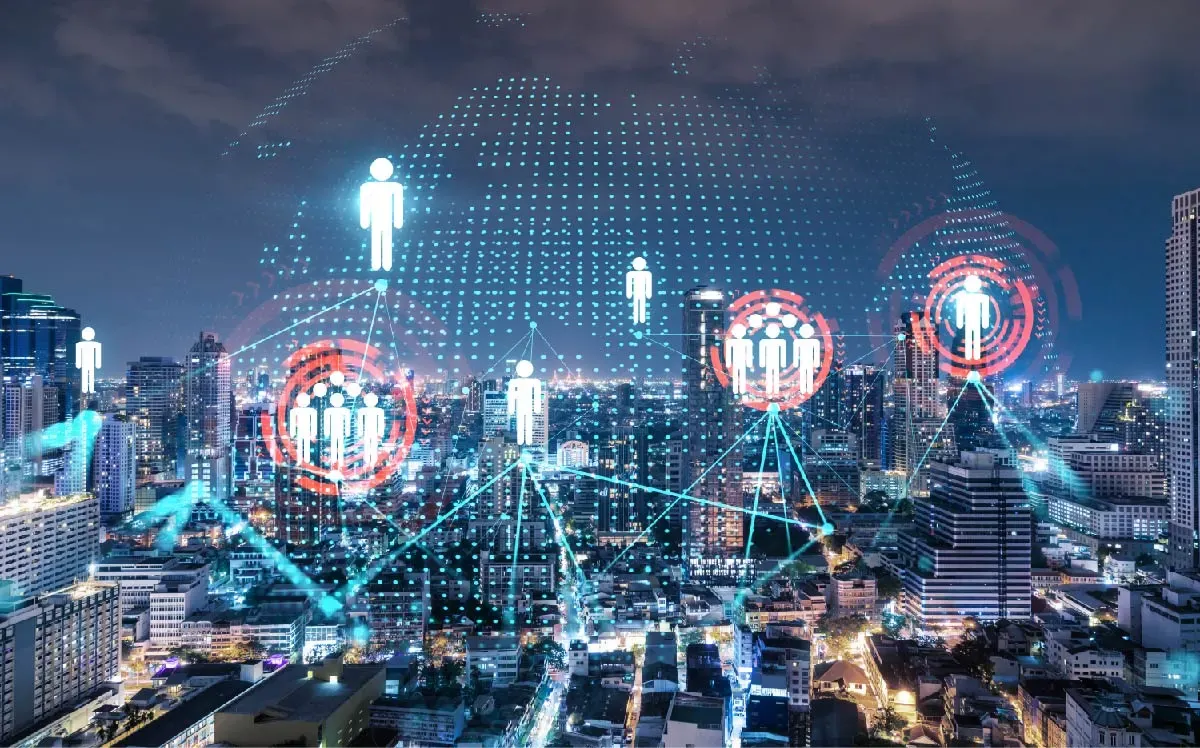Working Hours:
Mon - Fri 9 am - 5 pm PST
Got a question? Just call us at
The Impact of Al on PPC Advertising: What You Need to Know in 2023 and Beyond?
From enhanced audience targeting to automated bidding and ad personalization, we will explore AI’s transformative capabilities to PPC advertising in 2023 and beyond. So, let’s dive in and discover AI’s exciting possibilities for your PPC campaigns.
Artificial Intelligence (AI) has become a transformative technology across various sectors, and its impact on digital advertising, particularly in PPC (Pay-Per-Click) advertising, is undeniable. As we step into 2023 and beyond, AI continues to reshape and optimize PPC campaigns, providing marketers and businesses with unprecedented opportunities for success.
PPC advertising has long been a staple in the digital marketing toolkit, enabling businesses to target their ads to specific audiences and pay only when someone clicks on their ad. However, AI has unlocked a new level of sophistication and efficiency in PPC advertising, enhancing targeting capabilities, ad optimization, and overall campaign performance.
Revolutionizing PPC Advertising: The Power of AI in the Digital Landscape
The impact of AI on PPC advertising is genuinely transformative. From advanced audience targeting and automated bidding to ad copy optimization and predictive analytics, AI-powered tools and algorithms are revolutionizing how businesses approach PPC campaigns.
Embracing AI in your advertising strategy can unlock new levels of efficiency, precision, and performance, enabling you to reach the right audience with the right message at the right time. As we move into 2023 and beyond, leveraging AI in PPC advertising will be essential for staying competitive in the dynamic digital landscape.
Here, we will explore the multifaceted positive impacts of AI on PPC advertising, providing a detailed understanding of how this transformative technology is reshaping the landscape.
- Enhanced audience Targeting
One of AI’s most significant benefits to PPC advertising is its ability to improve audience targeting. By leveraging AI algorithms, marketers can go beyond basic demographic information and delve into user behavior, interests, and preferences.
AI-powered tools analyze vast amounts of data to identify patterns and trends, allowing advertisers to deliver more personalized and relevant ads to their target audience. This level of precision targeting increases the chances of conversion and helps businesses optimize their ad spend by reaching the right people at the right time.

- Automated Bidding and Optimization
AI has revolutionized the bidding process in PPC advertising. Machine learning algorithms can analyze real-time data and make automatic bid adjustments to maximize ad campaign return on investment (ROI). With AI-driven bidding, advertisers can optimize their bids based on keyword competitiveness, historical performance, and user behavior.
This automation eliminates the need for manual bid adjustments, saving time and effort while ensuring that it displays ads to the most valuable audience segments.
- Ad Copy and Creative Optimization
Creating compelling ad copy and visuals is crucial for driving engagement and conversions. AI-powered tools can analyze historical performance data and user behavior to optimize ad creative elements. AI algorithms can identify the most effective combinations that resonate with the target audience by testing and iterating different variations of ad headlines, descriptions, images, and calls to action.
This iterative process of creative optimization helps advertisers refine their messaging and increase the overall effectiveness of their PPC campaigns.
- Predictive Analytics and Insights
AI enables marketers to tap into the power of predictive analytics to gain valuable insights into PPC campaign performance. AI algorithms can analyze historical data and recognize trends, patterns, and correlations that may not be readily apparent to human analysts.
It will enable advertisers to make data-driven decisions, anticipate customer behavior, and adjust their strategies accordingly. With AI-powered predictive analytics, businesses can optimize their budget allocation, bidding strategies, and ad placements to maximize conversions and ROI.
“AI adoption in PPC advertising has been on the rise. According to a survey by Marin Software, over 60% of digital advertisers were already using AI and machine learning to optimize their PPC campaigns. Integrating AI technologies allows businesses to enhance targeting, automate bid management, and improve overall campaign performance”.
- Fraud Detection and Prevention
Click fraud has long been a concern in PPC advertising, leading to wasted ad spend and skewed campaign performance. AI algorithms play a crucial role in detecting and preventing fraudulent activities. AI can identify and flag suspicious activities as potential fraud by analyzing click patterns, user behavior, and other relevant data points. It helps advertisers protect their budgets and ensure their campaigns reach genuine, interested users.
While Artificial Intelligence (AI) has brought numerous benefits to PPC (Pay-Per-Click) advertising, it is also essential to consider the potential negative impacts. Here are some of the challenges and unfavorable effects associated with AI in PPC advertising:
- Privacy Concerns
Using AI in PPC advertising involves collecting and analyzing vast user data. It raises concerns regarding privacy and data protection. Advertisers must adhere to relevant privacy regulations and obtain proper consent for data usage.
Failure to address privacy concerns adequately can erode consumer trust and result in a backlash against targeted advertising practices.
- Overreliance on Automation
While AI-driven automation streamlines PPC advertising processes, there is a risk of overreliance on automation without human oversight.
Relying solely on AI algorithms for bid management and campaign optimization can lead to suboptimal results if the algorithms need to be calibrated appropriately or unexpected changes occur. Advertisers must balance automation and human expertise to ensure optimal campaign performance.
- Algorithm Bias
AI algorithms used in PPC advertising rely on historical data, which may contain biases inherent in the data itself. These biases can result in discriminatory or unfair ad targeting. For example, if historical data shows a preference for specific demographics, the AI algorithm may perpetuate biases by excluding or underserving certain groups.
Advertisers are responsible for actively monitoring and addressing algorithm biases to ensure fairness and equal opportunities for all audiences.

- Adversarial Attacks and Manipulation
As AI algorithms become more sophisticated, they also become susceptible to adversarial attacks and manipulation. Malicious actors can exploit vulnerabilities in AI algorithms to deceive or manipulate ad-targeting systems. It can lead to fraudulent activities, such as click fraud or ad injection, which undermine the integrity and effectiveness of PPC campaigns. Advertisers need to implement robust security measures to safeguard against such attacks.
- Loss of Human Connection and Creativity
While AI can optimize targeting and ad performance, it may need more human touch and creativity that resonate with audiences on a deeper level. Advertisements created solely based on AI-driven data analysis may lack the emotional appeal and storytelling human creativity can provide. Striking a balance between AI-driven optimization and human-driven creativity is crucial to maintain a strong connection with the target audience.
Take Away
In the current age and beyond, understanding the symbiotic relationship between AI and PPC advertising is crucial for businesses aiming to stay competitive and achieve their marketing goals. AI empowers marketers with advanced audience targeting and personalization capabilities to deliver tailored ads to specific segments.
This level of precision and relevance enhances engagement, increases conversion rates, and ultimately drives better ROI. By leveraging AI-powered tools, businesses can tap into valuable insights about their audience’s behavior, preferences, and interests, enabling them to create personalized ad experiences that resonate on a deeper level.
Moreover, AI’s automation and optimization potential streamlines PPC advertising processes, increasing efficiency and improving campaign performance. AI algorithms continuously monitor and adjust bidding strategies, ad placements, and budget allocation in real time, freeing up valuable time and resources for marketers to focus on procedures and creativity.
Combining human expertise and AI-driven automation enables businesses to achieve optimal outcomes while maximizing their resources. However, it’s essential to acknowledge and address the potential challenges associated with AI in PPC advertising, such as privacy concerns, algorithm biases, and the need to maintain human connection and creativity.
Advertisers must balance leveraging AI capabilities and preserving the human touch to ensure their campaigns remain relatable and engaging. By understanding and harnessing the power of AI in the current age and beyond, businesses can unlock new levels of audience engagement, achieve higher conversion rates, and drive impactful results in the ever-evolving digital advertising landscape.
Embracing AI as a strategic ally will undoubtedly shape the future of PPC advertising and propel businesses toward success in the dynamic world of digital marketing.
Resource:
PPC Marketing for Startups: 7 Steps to Launch a Successful Marketing Campaign
Suggested articles


